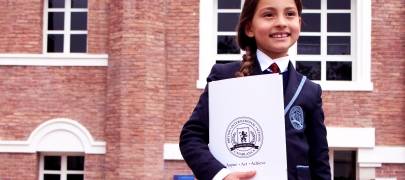Secondary School Curriculum Policy: Key stages 3 and 4.
Purpose
The purpose of this policy is to clearly and simply outline the framework for the provision of the Secondary School Curriculum to students in Year 7-11.
Overview
At BISC, the curriculum includes all the planned activities that we as a school organise in order to promote learning, personal growth, development, and wellbeing. It includes, not only the formal requirements of the Cambridge Curriculum, but also the range of extra-curricular activities that the school organises in order to enrich the experiences of our children. Furthermore it also includes the ‘hidden curriculum’ which together with the formal curriculum and co-curriculum seeks to embed the values of global citizenship and international mindedness in the behaviours of the students..
BISC provides a curriculum that is broad and balanced, within international constraints. The school strongly values the place of the arts and creativity and aims to sustain their place within the curriculum. Citizenship will be promoted within PSHE, on special Citizenship Days, and through PSHE lessons.
A flexible timetable widens the choices available to students and enables them to follow a curriculum that is best suited to their interests, skills and needs in the Secondary School.
We will continue to follow the policy of admitting only students to BISC whose curricular needs we are able to meet, including students who have special educational needs or English as an Additional Language needs.
Fundamental to the curriculum is the quality of teaching and learning. We continually look for ways to improve the quality of teaching, based on a British model of quality and a reflective, collaborative approach. To improve the quality of learning we run a comprehensive INSET/training programme and share good practice between teaching staff and with other schools. The school offers regular staff training opportunities which seek to enhance 21st century teaching skills.
Aims
We aim to teach students how to grow into positive, responsible global citizens, who can work and co-operate with others, whilst developing knowledge, skills and attitudes to learning, in order that they achieve their true potential. At BISC we aim to offer a balanced and broad based curriculum which provides:
- An enjoyable learning environment
- Development of each child: spiritual, moral, intellectual, social, emotional, and physical
- A learning environment in which all pupils are encouraged to actively participate and where pupils understand that making mistakes is an important part of the learning process
- An accessible curriculum and the support needed to enable our pupils to become confident, successful, independent learners
- A rigorous curriculum which develops critical thinking skills, challenging each and every pupil to strive to be the best they can be
- Encouragement for pupils to set high goals, which can be broken down into a series of smaller achievable targets, and to motivate and inspire our pupils to work toward achieving their goals
- Support programmes to enable each and every pupil an equal opportunity to succeed intheir studies
- A rich extracurricular programme to enable them to discover and develop their special talents and abilities
- A pastoral care system which ensures that all pupils feel included and valued
- A safe, comfortable learning environment where pupils feel secure, happy, and cared for
- An exploration of their spiritual, moral, cultural, mental and physical development
- Opportunities to reflect on British and International values
- Opportunities to learn and practise the basic skills of English, Mathematics, and Computing
- A way to make learning more meaningful by putting it into a meaningful, relevant context
- Provide challenge, allowing pupils to engage themselves in deeper learning
Key Stage 3
In KS3 all students study the same subjects. Students are taught the Cambridge Lower Secondary Curriculum enriched by references to both the English national Curriculum and the Moroccan National Curriculum. Moroccan students who are enrolled on the Massa programme will be prepared for Massar assessments at the end of Year 7.
Students will therefore study the following subjects: English, Mathematics, Science, French, Arabic, Islamic Studies, Global Perspectives (History and Geography), Art, Drama, Music, PE and PSHE.
The lessons are taught in tutor groups in all of the subjects. Lessons are 45 minutes in length. At the end of Year 7 and Year 8 students will sit Cambridge Progression tests in English, Mathematics and Science, internally moderated. At the end of Year 9, students will sit the Cambridge Checkpoint exams in English, Maths and Science, externally moderated.
Key Stages 4
In KS4 students study an extensive core curriculum (English, Mathematics, Science, ICT/Computer Science, French, Arabic, Islamiyat and Global Perspectives). In addition to the core subjects, they are invited to select one option subject from the following: Art, Drama, History and Geography. In addition to these subjects, all students will have on their timetable two lessons of Physical Education and one lesson of PSHE.
All the subjects examined in Year 10 and Year 11 will follow the Cambridge International Examination Curriculum and end with an IGCSE exam by the end of Year 11. All students finishing KS4 in BISC will ideally have 7 to 10 IGCSE qualifications in their portfolio.
Individual Pathway
BISC is committed to ensuring that the best interests of the students are paramount in determining the programme of study for any imdividual student.
Share this page
Admissions
Admissions are now opened and we invite you to visit us, meet our Heads, Teachers, Admissions team to discover our pedagogy based on rigour, excellence, compassion and respect.
Enquiry now